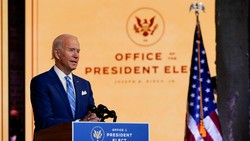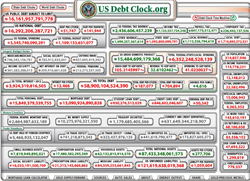President-elect Joe Biden’s plan for higher education boasts more accessible post-secondary instruction as well as a thriving middle class by wiping away student debt for millions of Americans. However, faculty have differing opinions on the extent of its social and economic benefits.
Randall Abate, J.D., a Professor of Political Science, explained that the plan is not likely to gain bipartisan support in today’s political climate, and that the Republicans in Congress are extremely opposed to major government spending initiatives including government-funded free higher education.
Still, the shift towards free higher education might boost the economy in the long-term. “Republican opposition to the initiative will be accurate in that it will likely cause a short-term hit to the economy,” Abate recognized. “Investing in the future generations of Americans through government support of higher education in this initiative will promote growth in the U.S. economy, but it may take decades to realize those gains,” he added.
According to Biden’s “Plan for Education Beyond High School” on his campaign site, community college should be free to attend because 30 million jobs with starting salaries of $55,000 do not require bachelor’s degrees.
Twenty-five U.S. states already offer free community college for two years for qualifying families, and programs like NJ Stars offer it for students explained Robert Scott, a Professor of Economics, Finance, and Real Estate. “I think offering free community college education for all students is a decent idea. Many [community colleges] offer vocational-style training in bookkeeping, IT, etc., which is a good option for students that do not want or can’t afford a traditional four-year college experience/degree,” he said. “Today many [community college] courses transfer to four-year schools, so if students want a less expensive option to getting a four-year degree then [community colleges] are a sensible option.”
While economic activity might increase slightly, Scott finds it unlikely that many more people will attend community college because it is tuition-free. “[Community colleges] are already very inexpensive compared to four-year schools (and many already offer free or reduced tuition), so I don’t think cost is a major obstacle to attending [them]. But for some people this might make a difference, which is something I support.”
Biden’s plan further specifies that the federal government will partner with states to ensure that students who want to attend 4-year institutions can do so debt-free: with the federal government paying 75 percent of tuition and the states handling the remaining cost.
Scott said, “It seems unwise that the government simply pay whatever colleges are going to charge. This could get very expensive, which will lead to either higher taxes or a larger government deficit. This also only covers tuition. On-campus living costs have increased the most at colleges, so students will likely still incur significant expenses to attend a residential school.”
However, Scott speculated that private schools that do not receive subsidies will find it difficult to attract students since costs are higher, potentially encouraging private universities to reduce costs by spending more efficiently.
The plan makes the case that greater access to skills without debt will give Americans the opportunity to “join or maintain their place in the middle class” and ensure they don’t have to sacrifice security nets such as retirement to pay off debts, according to his campaign site.
“The plan certainly is grounded in sound logic,” Abate said. “It is in the best interest of society, both economically and socially, to enable citizens to pursue their chosen professions without concerns about educational debt factoring into their decisions.” He explained that the cost of higher education served as a barrier for young adults pursuing their desired career paths. Educational debt has also led professionals to pursue careers unaligned with their skillset to make ends meet.
Dissimilarly, Eric Schwartz, a senior political science student, believes the plan will have two long-term effects. “On the positive side, it’ll help more people get degrees and eventually join the workforce. On the other hand, it’ll further decrease the value of associates and bachelor’s degrees which are already meaning less and less to employers as more people get them.”
Still, Abate believes that increased government funding of higher education is vital to promoting economic stability and social equity in America. “Biden’s initiative is one of many possible options to promote these goals. At a minimum, it will spark much-need policy discussion on the future of higher education in this country.”
IMAGE TAKEN from ABC20




